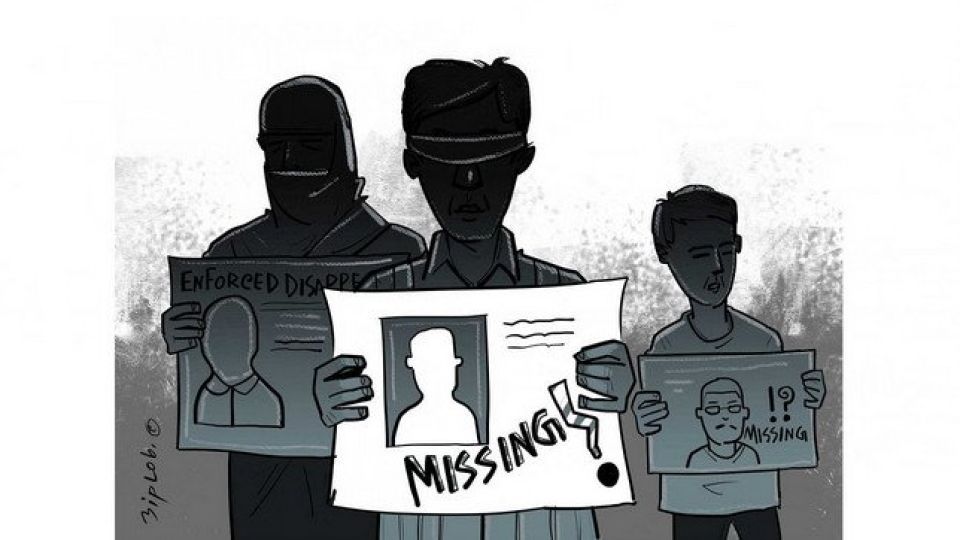November 13, 2023
DHAKA – The UN’s Human Rights Council will be reviewing Bangladesh’s human rights situation in Geneva today as part of its four-yearly Universal Periodic Review (UPR).
A delegation from Bangladesh, led by Law Minister Anisul Huq, is now in Geneva, and it is accompanied by high officials from the ministries of foreign affairs, law, and Chattogram Hill Tracts affairs.
Bangladesh will be presenting a report summarising the human rights situation in the country. The other member states of the council will take stock of how Bangladesh is performing and make recommendations, which can either be implemented or rejected.
The government’s national report named victims of enforced disappearances and claims that they are actually not victims of enforced disappearances, but rather voluntary disappearance for personal reasons.
It named university teacher Mubasshar Hasan, Hummam Quader Chowdhury, retired diplomat Maroof Zaman, BNP leader Salauddin Ahmed, journalist Utpal Das among others. They all “returned voluntarily”, it said.
Regarding Zaman, the national report said, “Some speculated on Rab liability for his disappearance. However, he reappeared by himself after 15 months.”
The report goes on to claim that 28 of the 76 on the Working Group on Enforced or Involuntary Disappearances’ list “have criminal cases including murder cases against them and are absconding to avoid justice”.
“There were 10 cases where the relatives didn’t cooperate with law enforcement agencies by providing information/feedback as was required for investigation,” it said, adding, “Two are foreign nationals [about whom no judicial or police records were found regarding the said missing incident].”
The government said, “Miscreants’ using the name and disguise of law enforcement agencies to carry out abductions and kidnappings has emerged as a worrying trend”.
Furthermore, the government continues to insist that those cited to be victims of enforced disappearance are not actually missing.
Civil society organisations like Human Rights Watch, The Human Rights Foundation, Maayer Daak, Robert F Kennedy Human Rights, World Organisation Against Torture and many others refuted this in a report submitted to the council.
“The government continued to deny the occurrence of enforced disappearances despite a reported total of 192 persons that had been subjected to enforced disappearance,” they said.
The government did not respond to requests for a visit by the UN Working Group on Enforced or Involuntary Disappearances, they pointed out in their report.
Four years ago, 15 countries like Japan, US, Italy, France, Switzerland, Sweden, Norway, Togo, Peru, and South Korea had told Bangladesh to take steps about enforced disappearance, like ratifying the International Convention for the Protection of All Persons from Enforced Disappearance.
The government’s report said it is strengthening the National Human Rights Commission of Bangladesh (NHRCB) by making “violence by state mechanism” one of the priority areas for the commission’s next five-year plan.
However, the civil society organisations pointed out that the human rights commission still cannot legally investigate law enforcers.
The NHRCB stated this in a report submitted to the council. “The NHRCB acknowledged its limited authority to investigate allegations against law enforcement agencies and recommended establishing an independent mechanism for investigations and an independent complaint mechanism to address allegations of torture and ill-treatment,” said the Office of the United Nations High Commissioner for Human Rights.
The civil society organisations said, “The government continued to ignore the calls of civil society organisations for a transparent and participatory selection process of the NHRC members.”
The government claimed in its report that during the last national elections “216 complaints were received but later disposed of as [they were] disallowed for invalidity or lack of evidence”. It accepted 46 complaints and took action, it said.
The civil society organisations in their report said the Election Commission, law enforcement agencies, and the judiciary are used by the government to implement its political agenda.
The national report mentions that the Digital Security Act was amended and the new Cyber Security Act was enacted “to ensure freedom of journalists in cyberspace”.
Multiple organisations, including Editors’ Council and Amnesty International, said the new law would not protect journalists.
During the council’s last UPR cycle, 30 countries recommended that Bangladesh take steps to uphold freedom of expression, including changing existing legislation.
The national report claimed that EPZ workers can form welfare associations but stakeholders refuted that claim.
Civil society organisations like the UK and Belgium-based International Centre for Trade Union Rights and International Trade Union Confederation mentioned in their report that there are still barriers to trade union registration and recommended reforming labour laws.
The government report stated that a draft data protection act has been made incorporating stakeholders’ recommendations.
Stakeholders, however, said the draft still grants the government sweeping powers to access personal data without judicial oversight.
They recommended that the proposed act be amended as per international standards.
Human Rights Watch and others pointed out that the government has not fully implemented the Chittagong Hill Tracts Peace Accord.
Bangladesh received 256 recommendations in the last UPR cycle.


